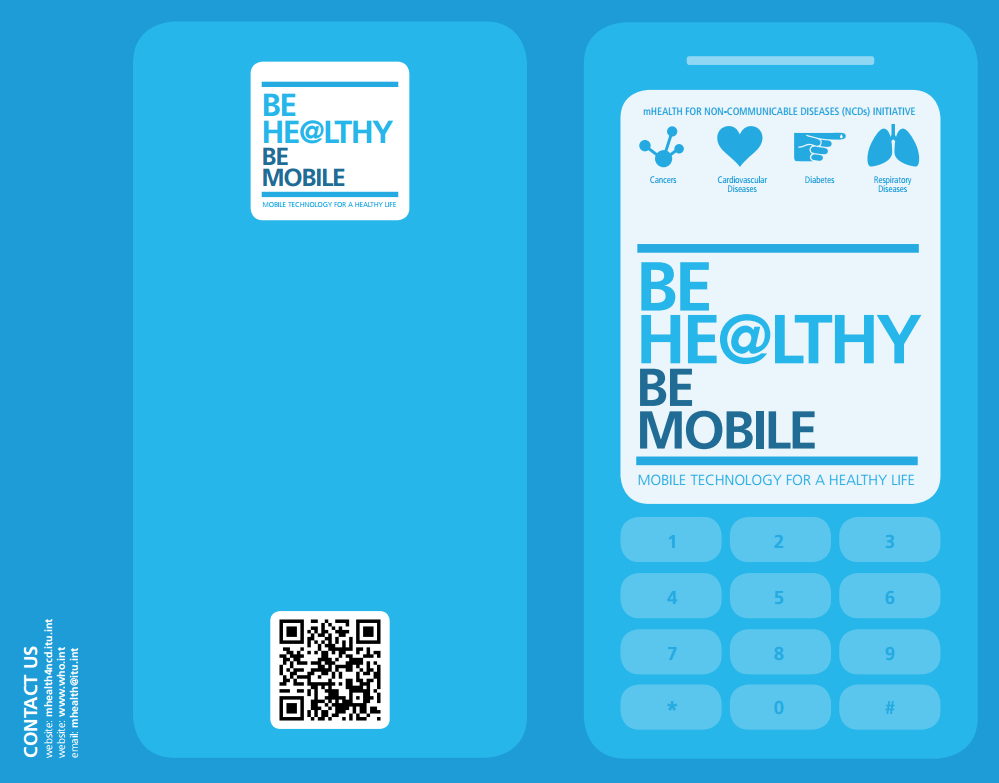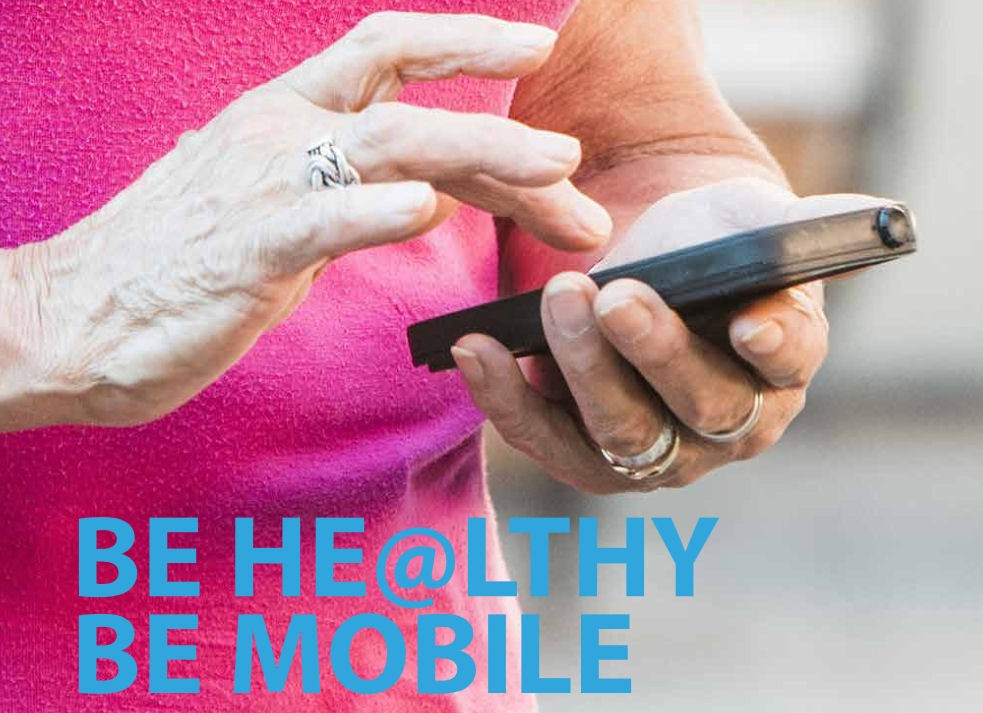Be Healthy Be Mobile
Recognizing the huge potential mobile technology has to overcome barriers, IFPMA joins forces with ITU, WHO, and other partners on Be He@lthy, Be Mobile. This initiative harnesses the power of mobile phones to educate people to make healthier lifestyle choices to help prevent and manage NCDs.
Partnership objectives
- Contribute to global and national efforts to prevent and control NCDs;
- Develop the best solutions for mHealth interventions for NCDs;
- Scale up already successful and cost-effective technologies for NCDs;
- Harness the best mobile technology available and make it accessible for all countries.



Non-communicable diseases (NCDs) lead to more than 36 million deaths every year. More than nine million of these deaths are “premature deaths” that occur before the age of 60. Although NCDs are common globally, their negative impacts are often more strongly felt in low- income countries. Be He@lthy, Be Mobile aims to contribute to global and national efforts to save lives, minimize illness and disability, and reduce the social and economic burden that NCDs create.

©IFPMA
Be He@lthy, Be Mobile is a unique joint project between the United Nations health and telecommunications agencies, and selected private sector and civil society organizations, to use mobile technology, in particular text messaging and apps, to help member states combat the growing burden of NCDs. Mobile phones are being successfully used in different health fields, improving access to health services, training health workers, and assisting individuals to manage their diseases. They are also extremely cost-effective. A number of countries also use mobile technology to monitor and control NCD risk factors. This initiative takes successful pilots and uses them as templates, scales them up and customizes them to each country’s need.
IFPMA, GlaxoSmithKline, Sanofi and Novartis are official partners of this initiative.
How can partners contribute to this initiative?
In-kind contributions:
- Share experiences and expertise (health, ICT, mobile, innovation, financing, etc);
- Suggest experts to the Technical Expert Groups;
- Collaborate in specific country implementation (contribute human and technical resources);
Financial contributions:
- Financial contributions can be made to support both global and country-level activities.
90% of the world's population
has access to mobile networks
6 million people
have access to at least one mobile
More than 38 million people
die annually from NCDs









